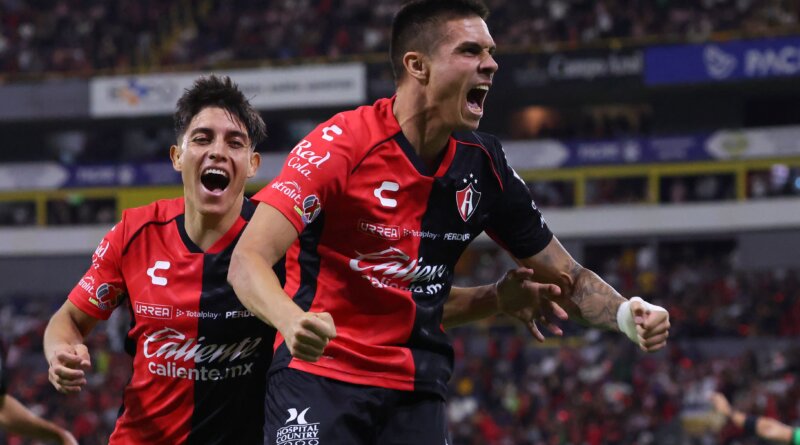Atlas FC Sale Shakes Liga MX
The Atlas FC sale has officially sent shockwaves through the Mexican football landscape, as parent company Grupo Orlegi has placed the Guadalajara-based club on the market. This monumental decision stems directly from a significant policy shift within Liga MX, which is actively moving to dismantle multi-club ownership structures to enhance competitive integrity. The reported asking price for the historic club is a staggering $400 million, a valuation that reflects its recent revival and back-to-back championships. Grupo Orlegi, which also owns fellow Liga MX side Santos Laguna, now faces the complex task of divesting one of its key assets, with the sale expected to be finalized within the next six months.
## The Catalyst: Liga MX’s War on Multi-Club Ownership
The primary driver behind the landmark Atlas FC sale is the evolving regulatory environment in Mexican football. Liga MX officials have grown increasingly concerned about the potential conflicts of interest and competitive imbalances inherent in multi-club ownership (MCO) models. When a single entity controls multiple teams within the same league, questions about fixture integrity, player transfers, and strategic allegiances inevitably arise. To safeguard the league’s fairness and credibility, the governing body is mandating that ownership groups like Grupo Orlegi streamline their holdings to a single domestic club.
This regulatory pressure forced Grupo Orlegi into a difficult strategic position. The conglomerate, known for its savvy business operations and sporting success, had to choose between its two Mexican football jewels: Santos Laguna, a long-held and consistently competitive team, and Atlas FC, a club they dramatically resurrected. The decision to sell Atlas suggests a strategic calculation, likely capitalizing on the club’s peak market value following its recent golden era. This move is a clear signal that Liga MX is serious about enforcing its new rules, a policy that could have a domino effect on other ownership groups with similar structures in the future.
### Grupo Orlegi’s Successful But Complicated Reign
Grupo Orlegi’s tenure at Atlas FC has been nothing short of transformative. When they acquired the club, it was known more for its passionate, long-suffering fanbase than for its on-field success. The “Rojinegros” had endured a 70-year title drought, a painful legacy that defined generations of supporters. Under Orlegi’s stewardship, that narrative was completely rewritten.
Through shrewd investment, strategic management, and the appointment of coach Diego Cocca, Atlas achieved the unthinkable. They broke their curse by winning the Apertura 2021 title and immediately followed it up by conquering the Clausura 2022, becoming only the third team in the short-tournament era to win back-to-back championships. This historic “bicampeonato” not only brought immense joy to their supporters but also massively elevated the club’s brand and commercial value, directly contributing to the hefty $400 million valuation seen today. However, this very success, coupled with their ownership of Santos Laguna, placed them squarely in the crosshairs of Liga MX’s new MCO regulations, ultimately making the Atlas FC sale an unavoidable consequence of their own triumph.
## Dissecting the $400 Million Atlas FC Sale Valuation
The $400 million asking price places Atlas FC among the most valuable football club sales in the history of the Americas. This figure is not arbitrary; it is a calculated valuation based on several key factors that make the club an attractive, albeit expensive, asset for potential investors.
What Justifies the Price Tag?
Firstly, the recent on-field success is paramount. The back-to-back championships transformed Atlas from a mid-table side into a powerhouse, granting them increased prize money, television revenue, and continental competition berths like the CONCACAF Champions League. This success created a powerful brand halo.
Secondly, the club possesses a deeply rooted and fiercely loyal fanbase, primarily centered in Guadalajara, Mexico’s second-largest city. This dedicated following ensures consistent stadium attendance, merchandise sales, and a strong community connection—a vital component for any sports franchise’s long-term health.
Thirdly, the club’s infrastructure and its position within the vibrant Liga MX market are significant assets. Liga MX is one of the most-watched leagues in North America, with strong broadcast deals in both Mexico and the United States. A new owner would be buying a turnkey operation with a championship pedigree and immediate access to this lucrative market. The potential for growth, especially with the 2026 FIFA World Cup being co-hosted by Mexico, adds another layer of appeal for investors looking to capitalize on football
Your global gateway to nonstop football coverage:
News Goal
Share this content:

